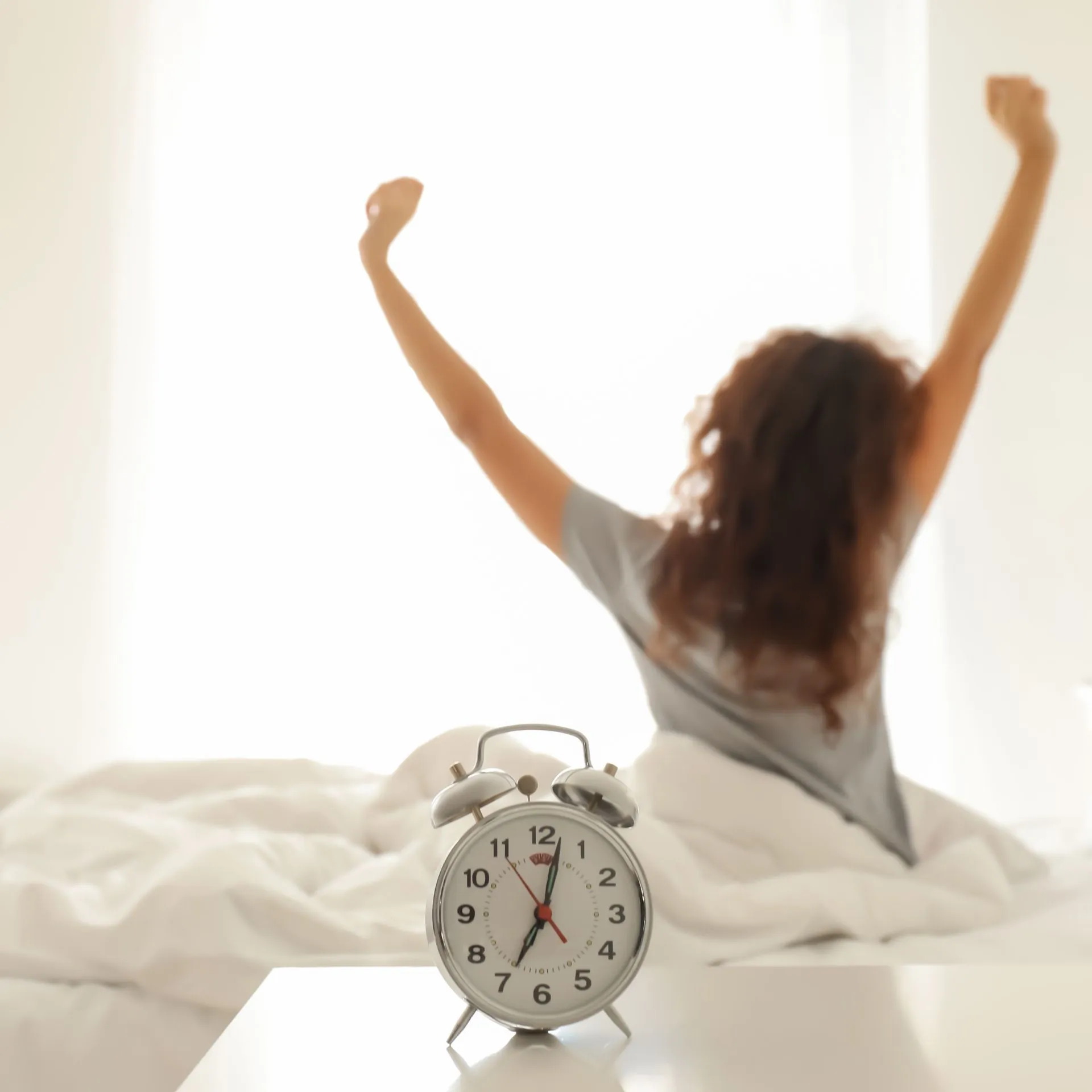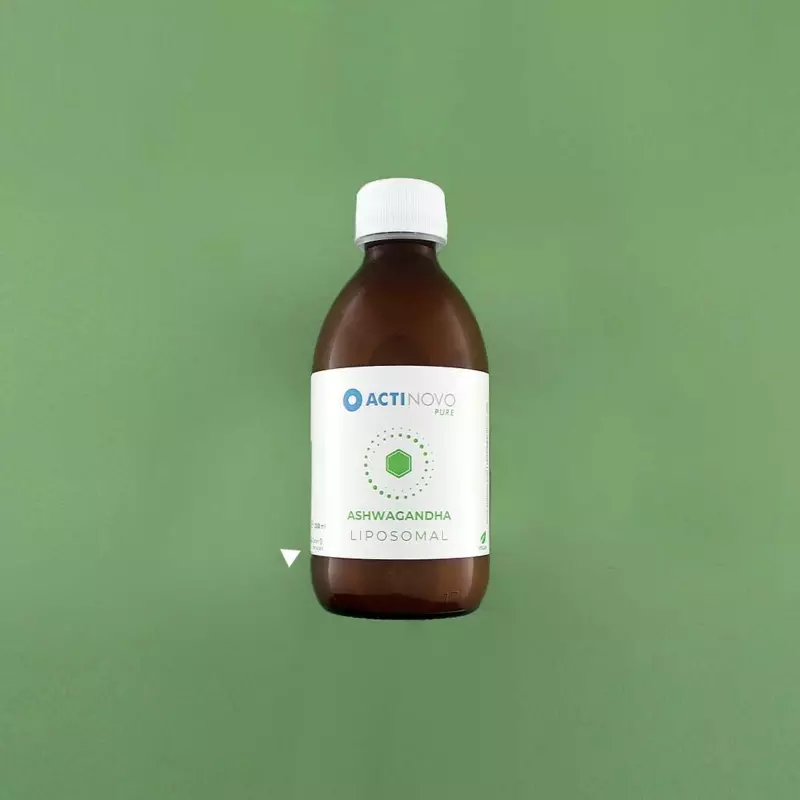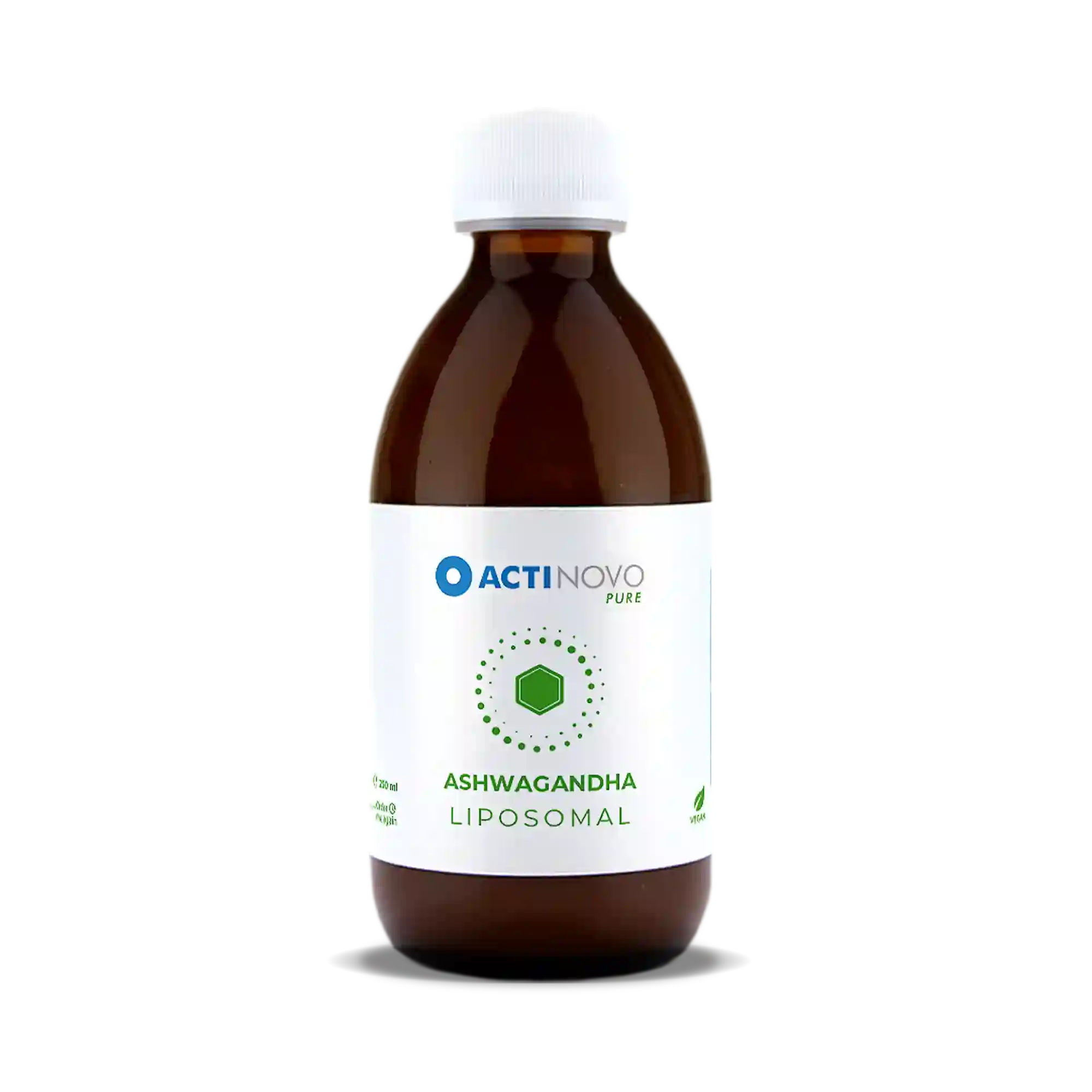
Ashwagandha – The winter cherry from Ayurveda
What Will You Learn in This Guide?
- Origin and history of the nightshade plant
- Adaptogens for body-wide balance
- The effect of ashwagandha
- What is stress actually?
- Studies show: Ashwagandha as a remedy for stress and depression
- The sleeping berry for restful nights
- Mental performance enhancement through Ashwagandha supplements
- The natural doping for muscle building
- Medicinal plant promotes the balance of the thyroid gland
- Liposomal Ashwagandha in liquid form
- Ashwagandha Intake
1. Origin and history of the nightshade plant
Ashwagandha (Withania Somnifera) belongs to the nightshade family and has been one of the most important medicinal plants in Ayurveda for over 3000 years [1]. The plant substance is also called Indian ginseng, because like ginseng in China, ashwagandha is used in India to treat a wide range of ailments, such as stress-related sleep disorders.
The name Ashwagandha comes from originally Sanskrit (ancient Indian). In Europe, the nutrient is also called winter cherry or sleeping berry. Ashwagandha is widely distributed in Asia as well as in Southern Europe and almost all of Africa. The small bushy plant bears red berries that strongly resemble physalis in appearance.
However, the berries of the medicinal plant are not used in medicine and should not be eaten. Not without reason, the plant is therefore also called poison gooseberry. Traditionally, it is mainly the roots that are used in Ayurveda, as they contain the highest concentration of the main active ingredient, withanolides, and, unlike the leaves, do not contain any undesirable substances [2,3].
2. Adaptogens for body-wide balance
An adaptogen is the name for a secondary plant substance that helps to adapt to increased physical and emotional stress situations. Such adaptogens were first specifically studied by Soviet pharmacologist Nikolai Vasilyevich Lasarev in 1947 [4,5]. Adaptogens can increase stress resistance to various factors. These include extreme environmental factors, such as severe cold or heat, and biological and chemical pollutants.
Psychological influences, such as stress, anxiety, and depression, as well as physical stress from exercise, are regulated. Not only that, adaptogens even help counteract long-term damage from chronic stress [6,7,8,9].
3. The effect of ashwagandha
The effect of the plant substance is not based on sedating the body, but rather on restoring the lost balance.
Ashwagandha and stress
Ashwagandha is the most popular adaptogen used for stress and sleep problems. It has already been tested in numerous studies. Especially with serious and long-lasting sleep problems, the active ingredient can bring about improvement as well as provide positive support for depression. In acute stress, the plant substance has been shown to lower the level of the stress hormone cortisol [10].
Ashwagandha for sports
Athletes can also benefit from taking it. Ashwagandha increases strength and the male sex hormone testosterone. This in turn promotes muscle building and improves athletic performance. Due to increased stress, the testosterone level usually decreases in the body.
Ashwagandha and thyroid function
In addition, ashwagandha takes positive influence in thyroid disorders, as the plant substance restores the balance of thyroid hormones [11].
These promising properties explain why dietary supplements with Ashwagandha are getting increasingly popular.

4. But what is stress?
Nervous, unhappy, overworked, sleep deprived - we are talking about stress! Nowadays, many people suffer from the consequences of chronic stress!
But let's first clarify what stress means:
"Stress in the health psychological sense refers to a physical and psychological reaction of a person to a situation that is perceived as unmanageable. This stress reaction can be triggered by a variety of factors, such as time pressure or lack of time, social conflicts, a disturbed working atmosphere, inadequate leadership behavior by superiors, but also personal or family problems." [12]
In evolutionary terms, stress represents an important survival mechanism, namely the so-called fight-or-flight response. Stress floods the body with stress hormones, such as adrenaline, in dangerous situations to prepare it for flight. In the past, it was a matter of life and death when our ancestors had to escape from saber-toothed tigers and the like. However, this former advantage, which ensured our survival, is mostly a disadvantage in the modern world.
Today, stress arises from time pressure, busy schedules, deadlines, traffic chaos and many causes from which we can not escape in everyday life. Often a permanent stress arises, which brings our hormonal system out of balance. The level of the stress hormone cortisol increases, which decreases the function of our immune system. This means we are more susceptible to illness.
A long-lasting increase in cortisol, i.e. stress levels, can lower the sex hormone testosterone in the male sex and cause a decrease in estrogen in the female sex. It also promotes obesity, and even sleep problems can occur as a result. Too little sleep, in turn, weakens the immune system and promotes depression. No wonder that stress is the main cause of most sick leave in companies [13,14,15,16].
5. Studies show: Ashwagandha as a remedy for stress and depression
In a randomized, double-blind placebo controlled study, ashwagandha extract was evaluated for its efficacy in reducing stress and anxiety in adults. For this purpose, a test group consisting of 64 healthy adults received a dose of 300 mg of the plant substance twice a day.
The comparison group was given a placebo. Both groups were studied over a period of eight weeks. The results are astonishing!
The ashwagandha group possessed a significant reduction on the stress assessment scales.
For example, the cortisol levels fell by over 27% on average. The PSS score (Perceived Stress Scale), which measures perceived stress, was reduced by 44%.
The reseacrhers also assessed the psychological well-being through a self-report questionnaire. Aspects such as physical symptoms, severe depression, social dysfunction as well as anxiety and insomnia were measured.
Conclusion: all influencing factors could be reduced by 73%. The major depression item showed the greatest reduction at 79.3%. DASS (depression-anxiety-stress) scores also showed a decrease of over 70%.
The results of this study make it clear that ashwagandha extract increases stress resistance, thereby improving self-rated quality of life [17].
6. The sleeping berry for restful nights
As mentioned above, the calming plant substance has a great influence on the nightly rest. Clinical research also confirms this!
In an 8-week study, sleep parameters improved significantly in subjects taking ashwagandha. Improved rest was measured in both healthy subjects and those with pre-existing sleep problems.
In study participants who had pre-existing insomnia, significantly improved sleep quality was found and mental alertness was significantly increased [18].

7. Mental performance enhancement through Ashwagandha supplements
Ayurvedic Medicine has long used Ashwagandha to improve memory and cognitive abilities. Since a decline in cognitive abilities is often associated with the aging process, a pilot study investigated the influence of Ashwagandha.
In this study, the improvement of memory in adults with mild cognitive impairment was investigated. 50 adults received either the ashwagandha root extract (2x daily à 300 mg) or a placebo for 8 weeks.
At the end of the study, the ashwagandha test group showed significant improvement in both immediate and general memory. In addition, improvement in mental functions, sustained attention, and information processing speed were also measured [19].
8. The natural doping for muscle building
Another study investigated the influence of the plant substance on muscle mass, muscle strength, recovery from muscle injuries, and testosterone levels. For this purpose, 57 male subjects (18 to 50 years old) who had little to no previous experience in resistance training were divided into treatment and placebo groups. Subjects in the treatment group consumed 300 mg of the root extract twice daily.
After baseline measurements (status quo), both test groups completed resistance training for 8 weeks.
Muscle strength was assessed using the maximum load for one repetition in bench press and leg extension exercises. The test group taking ashwagandha showed a significantly greater increase in muscle strength for all exercises.
In the bench press exercise, the strength increase in the placebo group averaged 26.4 kg. In the ashwagandha group, it was 46.0 kg! The difference was also evident in the leg extension exercise: the placebo group was able to exert 9.8 kg more strength than in the initial measurement. The subjects taking the plant substance were able to lift about 14.5 kg more.
The increase in muscle size was also significantly higher in the ashwagandha group. On the arms, the placebo group had an increase of 5.3 cm², while the ashwagandha group had a plus of 8.6 cm².
Muscle recovery was assessed using serum creatine kinase levels as a marker of muscle injury from the effects of exercise. Compared to placebo participants, those receiving ashwagandha showed a significant reduction in exercise-induced muscle damage.
The increase in testosterone levels was also fivefold higher in the ashwagandha group.
So was the decrease in body fat percentage. The ashwagandha group lost 3.5% body fat, whereas the placebo group decreased only 1.5% [20].
9. Medicinal plant promotes the balance of the thyroid gland
In hypothyroidism, the levels of the thyroid hormones T3 and T4 in the body are decreased, while the level of the hormone TSH is increased. As a result, metabolism in all cells of the body is reduced.
Currently, about 1% of the population is affected! However, thyroid disease without obvious symptoms of hypothyroidism (subclinical hypothyroidism) already occurs in about 3 to 8% of the world's population. In both cases the hormones are not in balance!
A randomized, placebo-controlled, double-blind study was conducted to test the effects of ashwagandha root extract on the thyroid gland. Fifty subjects with subclinical hypothyroidism between the ages of 18 and 50 were studied for 8 weeks. One test group took 600 mg of the root extract daily, the other group only a placebo!
Conclusion: The TSH values in the blood serum of the ashwagandha group decreased significantly after 4 as well as after 8 weeks. In addition, the levels of the hormones T3 and T4 increased by 18.6% and 9.3% after 4 weeks. After 8 weeks, the increase was already 41.5% and 19.6% [21].
10. Liposomal Ashwagandha in liquid form
As with all ActiNovo products, the production process of this botanical is completely vegan, which is not always the case with conventional products, as many manufacturers work with milk.
In addition, the ActiNovo Ashwagandha supplement uses only the high-quality root extracts to ensure the high quality of the product. Thus, it can be excluded that the spectrum of action is distorted, because not the leaves with undesirable substances are used.
The withanolide content, i.e. the active ingredient of the plant, is around 5% in most conventional ashwagandha products. However, the extract used by ActiNovo contains around 10% of withanolides and can achieve a significantly higher effect compared to liposomal encapsulation.

11. Ashwagandha Intake
Experts recommend not to exceed the recommended daily dosage of Ashwagandha products. We recommend to take the Ashwagandha only in the afternoon or evening. This is because the relaxing effect can be strong. Please keep in mind that each person reacts individually!

